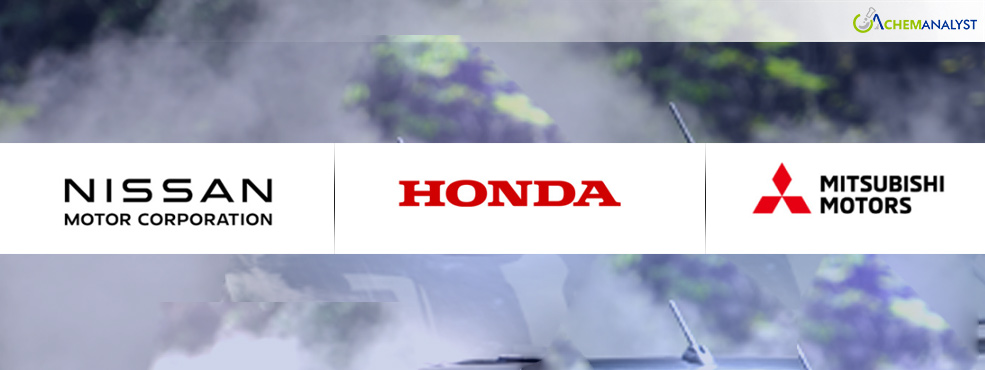Welcome To ChemAnalyst

Japanese automakers Honda Motor and Nissan Motor have signed a memorandum of understanding (MOU) to explore the possibility of a business integration, which could create the world's third-largest automaker by volume. Mitsubishi Motors Corporation is also in talks to join the alliance.
The MOU, signed on December 23, outlines plans for the companies to collaborate on a number of areas, including the standardization of vehicle platforms and the development of electrification initiatives. This collaboration is seen as a way for the companies to better compete in the rapidly changing automotive industry, which is facing challenges such as the rise of electric vehicles and autonomous driving.
The potential integration of Honda and Nissan would create a major force in the global automotive industry. The combined company would have a production capacity of over 10 million vehicles per year, ranking it behind only Toyota and Volkswagen Group. This scale would give the new company significant advantages in terms of research and development, purchasing power, and manufacturing efficiency.
The proposed business integration is still in its early stages, and there are a number of hurdles that need to be overcome before it can be finalized. One challenge is the complex task of integrating the two companies' cultures and operations. Another challenge is the potential for regulatory scrutiny, as the combined company would have a very large market share.
"Honda and Nissan have begun considering a business integration and will study the creation of significant synergies between the two companies in a wide range of fields," said Nissan Director, President, CEO and Representative Executive Officer Makoto Uchida. "It is significant that Nissan's partner, Mitsubishi Motors, is also involved in these discussions. We anticipate that if this integration comes to fruition, we will be able to deliver even greater value to a wider customer base."
Honda Director and Representative Executive Officer Toshihiro Mibe echoed Uchida's sentiment, stating that "At this time of change in the automobile industry, which is said to occur once every 100 years, we hope that Mitsubishi Motors' participation in the business integration discussions of Nissan and Honda will lead to further social change, and that we will be able to become a leading company in creating new value in mobility through business integration. Nissan and Honda will start the discussion from today onwards with an aim to clarify the possibility of business integration by around the end of January in line with the consideration of Mitsubishi Motors."
Mitsubishi Motors is also keen to explore the potential benefits of joining the alliance. "In an era of change in the automotive industry, the study between Nissan and Honda about a business integration will accelerate synergy maximization effects, bringing high value also to the collaborative businesses with Mitsubishi Motors," said Mitsubishi Motors Director, Representative Executive Officer, and President and CEO Takao Kato. "In order to realize synergies and to make the best use of each company's strengths, we will also study the best form of cooperation."
However, if the integration is successful, it could create a powerful new player in the global automotive industry. The combined company would be well-positioned to compete in the rapidly changing automotive landscape, and it could offer consumers a wider range of products and technologies.
We use cookies to deliver the best possible experience on our website. To learn more, visit our Privacy Policy. By continuing to use this site or by closing this box, you consent to our use of cookies. More info.
